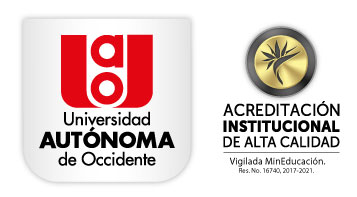NUEVAS CORRIENTES EN LA TEORÍA Y LA POLÍTICA ECONÓMICA ENTRE EL NEOLIBERALISMO Y EL NEOESTRUCTURALISMO
Abstract
Economic analysis in recent times has been centered around the controversy between neoliberals and neostructuralists, each group trying to convince the world about the positive aspects of one or another approach. This work is an attempt to reconcile both on the basis of the philosophical foundations and the differences and similarities of each point of view. The unifying approach is based on the recognition that neither the market or State are capable of solving all the disequilibrium presented in real markets in the economies of the word. Therefore, both play an important role in this process. A Hegelian vision of the dynamics of the world in the last two centuries shows that the spring of liberalism (thesis) in the nineteenth century and the socialism (socialism)in the twentieth century, should be followed by a synthesis consisting on the acceptance of the role of the State as a guarantee for equal opportunities for all, but with a deeply respect for the individual decisions, in a socio-democratic political framework. Conclusions are derived with respect to the training of economists in the present and the future in an environment of permanent theoretical policy changes, on the understanding that nobody has said the last word in this matter.
Downloads

This work is licensed under a Creative Commons Attribution-NonCommercial-NoDerivatives 4.0 International License.
Al enviar los artículos para evaluación, los autores aceptan que transfieren a la Revista de Economía y Administración derechos para su publicación en cualquier formato o medio. Para aumentar su visibilidad, los autores autorizan el envío de los documentos a bases de datos y sistemas de indización, o para ser consultados de manera gratuita y electrónica en https://revistas.uao.edu.co/ojs/index.php/REYA, así como en las bases de datos donde la Revista se encuentra registrada. A su vez, los autores serán responsables del contenido de los artículos; por lo tanto, no comprometen los principios o políticas de la Universidad Autónoma de Occidente, ni de la Revista de Economía y Administración y los miembros de sus comités.

